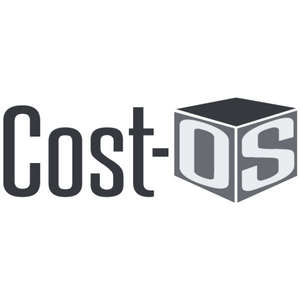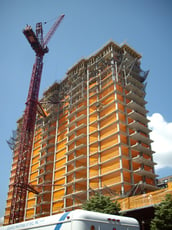Integrating Preconstruction and Operations
This week's webinar is a must-see. Estimators from Beckenhauer Construction, Sebastian Construction Group, and Balfour Beatty join us for a panel discussion about how they encourage collaboration between preconstruction and operations at their companies, as well as how they're managing collaboration and other processes among remote teams.
WATCH below!
Webinar Transcript:
Melissa: Good morning, everyone. We are so glad to have you here with us today. I’m Melissa Mullen from Beck Technology. This morning we're going to be jumping into a panel discussion of a couple of different topics including collaboration between precon teams and operations as well as how to keep encouraging and managing this collaboration at a time when a lot of our teams are partially or fully remote.
I just want to encourage those of you in the audience to ask questions as they come up. We may not be able to get to them during the webinar, but we are more than happy to follow up afterwards. So, with that being said, enough of me talking, I just want to jump into introductions. Jan, if you could get us kicked off that would be great.
Jan: I’m Jan Beran, I am a lead estimator for Beckenhauer Construction. We’re a team of about 35 folks here in Nebraska.
Melissa: All right and then Andy.
Andy: I'm Andy Onan. I’m with Sebastian Construction Group here in Dallas, Texas, and I’m a preconstruction manager for a company of about 60.
Melissa: Awesome and then Landon.
Landon McQuestion: Good morning. My name is Landon McQuestion. I'm the director of preconstruction and estimating for Balfour Beatty for the California division. Pretty big division, we have about 85 active projects here. We do about 750 million a year.
Melissa: Awesome. Thank you, guys, so much for being here with us today. I know that this is a significant time out of your day, and we really appreciate it.
I'd like to just jump right into the discussion. I want to start off by asking each of you to quickly describe which departments in your company are involved with developing, reviewing, and presenting estimates and Landon, if you could kick that off and then we'll go to Andy and then Jan.
Landon: Sure. Here at Balfour Beatty pretty much all the estimating is done by the preconstruction department and estimating department. We have quite a few estimators, so we handle a hundred percent of the estimating. We do collaborate a lot with the field teams, and we do a lot of different delivery methods.
With certain delivery methods, the collaboration happens more say design-build. We do a lot of large design-build so on those a superintendent and a senior PM or a PX gets involved really early and they have the estimating software on their computer. They're usually active in the estimate, they're asking questions, they're making notes.
Some of the other delivery methods in our area, like the CM Multi-Prime, CM At-Risk, are slightly less. They're where our department actually builds the estimate and then sends it to them, and they'll review it, but they don't actually have the software on their computer so it all just depends on the delivery method.
Melissa: Okay, and then Andy do you want to tell us about how you handle that?
Andy: Sure. So, we have three departments within our company that follow the life cycle of the project. Preconstruction, operations, and then our post construction group we call client services that do warranty work and small projects.
Our preconstruction group is made up of three estimators and three precon managers and also the president of our company. Kind of a sales role associated with precon, so that's part of what his role is -introducing the clients, bringing them in.
In terms of collaboration, we have a quite a bit of a review process that goes on with operations where any of our estimates that are going to contract, we have a formal review that we do with our operations team that will be taking over the project and then we have really some informal processes that we do for constructability issues where such they will go to a general superintendent or different project managers depending on what some of the issues are, to bring them in, help resolve issues before they're real issues in the field. I think it's high level for us.
Melissa: Okay, awesome and then Jan.
Jan: For our group, our preconstruction team slowly hands the project off to the field and not ops groups and so early on we do a lot of CM and design-build work, so we're starting off the conceptual or systematic phase and then continuing on through construction.
The earlier in the process, the more of it is on our preconstruction teams’ shoulders to do the heavy lifting as well as the review and sharing those estimates either at milestones or between. The closer and closer we get to actually buying the job out, breaking ground, the more involved the project manager and the superintendents are going to get. We can kind of make that transition happen in a way that gets the fields buy in. The most part most of the work is being done by the precon team.
Melissa: Awesome. So, it sounds like from a lot of what you guys are saying there is definitely an established relationship between precon and operations. Some of you did talk about processes, for those of you that didn't bring that up as much, do you have a standard process in place to collaborate with operations staff and if you do, are you receiving participation from ops? Anyone of you can just jump in and go for that.
Jan: As a smaller group, we probably take for granted that a lot of the standard operating procedures happen just by virtue of us being smaller. Learning now that we're working remotely that a lot of that collaboration was happening, it's kind of ad hoc, you know, jump next door to the PM's office and having a conversation, that sort of thing and we're having to be more intentional about it. So, this time has been interesting for us to kind of step back and take a look at how we are getting that input, do we need to formalize it as we continue to expand.
Landon: We have a pretty formal system here. How it works is a VP or a PX who's chasing a project submits an estimate request form, that becomes our estimate management system where how we manage all of our tasks between the estimators and the precon personnel and then that card also moves on and becomes the actual management piece during precon. That gets shared with the superintendent involved on the project or the pursuit of the senior project manager, project manager involved so it actually has tasks and roles for each person within it.
So, we have a pretty defined system. Like when it goes out, the superintendent knows that he needs to review the general requirements and the estimate and he knows that he needs to look at say the Swift requirements and make sure we have enough money in there for 10 fences and whatever else affects the superintendent highly and then the PM, he's got a checkbox system that he knows what he needs to look for in the estimate and when we go to review those things get checked so that we're sure that those people looked at what they need to look at.
Andy: For us, the process is pretty formal but maybe a little less collaborative. We take on a vast majority of our checks in precon directly and basically do a more of a review process with our operations staff. I think that's true for at least half of our work, that's pre commencement.
Once a project starts construction, the precon role continues for phases that maybe we have an interior package that comes in after the project starts and from that standpoint those are much more collaborative.
There is a PM, superintendent, the project is rolling and we have an established group that we can go to get their feedback but early on if I'm doing a conceptual budget or even a shell budget that's for a project that's about to start construction maybe in 30 days, we may not know yet who that team is going to be so I've got resources within our operational staff that I can go to with questions but until we have a commencement date and a transition meeting it's still a little bit fluid on who even who the superintendent is. We may have a guy kind of earmarked that we think this person may line up that we think they're going to be the person, but until it happens, it's pretty fluid.
Melissa: You know this a little bit and Jan mentioned that working remote has kind of brought up some areas where his team realizes hey, we need collaboration, transitioning to either partially or maybe in some cases fully remote teams. Have you guys, Andy, and Landon, have either of you noticed areas where you want to bring more collaboration? Have you thought of processes already that you think could solve maybe some of those areas that are lacking and Landon, kick that off.
Landon: Sure. We have been fully remote, some of us are back in the office now but we did go fully remote for a couple of months. We didn't really see too much of a change honestly. We didn't really see a drop in collaboration. Maybe it took a couple of days for everybody to really get in a cycle of ‘okay we use Teams meetings.’ Everybody uses the Team's tool a lot. For us we just didn't see much of its effect, everybody was already kind of remote when it comes to the field versus the office. We have really big job site offices so the superintendent's, the PM's, they were already out remote from us the precon department, so we were already used to collaborating with them remotely, so we didn't really feel impact honestly.
Melissa: Okay. Andy, what about on your side?
Andy: Yeah, pretty similar. Just purely in collaboration I'd say there's maybe a little bit less. It’s a little easier to pop your head up over the cubicle and interrupt your cubicle neighbor than it is to do it instant message on Teams. So, I think there's probably a little bit less collaboration that's going on.
Just communication in general but I think it's also been healthy too sometimes those interruptions can be pretty disruptive. Keeping it to saving it for more communication at once as opposed to spreading out throughout the day that keeps you from really getting on a flow with your workday but yeah, we’ve really benefited by just having the technologies that we were already using and getting probably more out of it.
We use some task management software. Microsoft To Do, it’s got some really good collaboration tools built in where you can set up a group of to do’s, assign them out within the team and put manage all the dates and get reminders and kind of track where people are on their assigned to dos and so we've been utilizing that.
Probably the hardest thing which I think with collaboration online for me anyways just reviewing plans. I’m still kind of a paper guy when it comes to looking at plans. I like to flip through a printed set of plans and being able to sit with a full-size set with another human and actually look at them together and point at things and draw on the plans and it's not quite as good trying to do that in a virtual environment. It's a little bit clunky.
I'm a big Bluebeam user and maybe I have a few more tricks to learn to really get good at that but when you've got a large plan set, four or five hundred pages and you're trying to flip through and have a working conversation with somebody that can be a little clumpy.
Melissa: Yeah, I can imagine. Jan, do you have any thoughts to add on to that for example maybe your company is already taking steps to kind of address those areas where y'all do collaborations such as bringing on more tools or due process? Things like that?
Jan: Yeah so, we've been working a little bit more intently to have project managers participate in the bid and buyout stage of the project. We're working on coming up with ways to assign different disciplines to different roles because we're a smaller company. We've got a fairly small precon team and what we're finding is that although there's a lot of projects on pause for a couple of months during this quarantine period everything's coming back in a flurry now and everybody wants to get things done.
Our little three and a half, four-man team is fairly overwhelmed at times and so we're working on implementing changes that bring the field staff into support earlier on and that handoff period projects. We haven't quite pinned down how we're going to manage that. It's going to have to have some sort of digital platform because when we returned to the office hundred percent we're spread out over the state and so we are lifting the waste and figuring out we can utilize Teams using that planner feature and setting up whether it's group chats or actual formal teams with planner tabs and all that stuff to help keep track, assign tasks, a lot like Andy and Landon we're speaking to, but we’re still kind of working through how that actually is going to look and feel for our group. With as customizable as those features are on our computers, the defined path isn't always there, just say okay we're going to start this is, how it's going to look. Kinda have to feel it out to see how it fits.
Melissa: Yeah, absolutely. The next question that we're going to tackle, we've got another question here from the audience that meshes really well with that. The question from the audience member is ‘how do each of you ensure at your companies that there's a feedback loop between preconstruction and operations? It sounds like Balfour has a really good system in place, but does it smooth out receiving and giving feedback as a project moves forward and tying in with that, do you at your company is there any rotation of personnel between ops and preconstruction that maybe helps inch this feedback loop and Landon if you could kick that off for us.
Landon: Sure. We don't have a system for bringing people from the field into precon. Precon is kind of standalone department spread across California. I think after hearing Jan speak, that's one of the things that I think made the transition to working remotely so fluid for us was we're already spread out. We have most of our estimators in San Diego, but we have some in Orange County, some in Riverside, some in San Francisco but we don't have a system for bringing in PMs or anybody else into the precon department.
Though when it comes to feedback from the field, it's on us, it's on the precon personnel. The fields, they're so focused on getting the project done on time and on budget that you have to hound them for feedback. We have systems for it, but times they just get busy, and it gets ignored so a lot of times for me it's picking up the phone hounding the PX, finding out how it really worked out, what we missed, what we can learn from that estimate or that bid. So, for us it's really on us as preconstruction now.
Melissa: Gotcha. We'll take it to Andy and then we'll wrap out with Jan.
Andy: Yeah, in terms of formal like cross-training between ops and precon and precon to ops, we don't have a process in place for that except for by a necessity. So, when we have somebody that's coming off of a project and we don't have a new project for them to go to, then they may rotate through precon for a period of time and then vice versa. If we have a project starting and we're light in precon, we may have a precon manager go be a PM but it's generally speaking an interim basis and not something that we really have a formalized process for. In terms of, remind me what was the second part of that question, Melissa?
Melissa: I think part of that question was regarding the feedback loop. So how do you ensure that there's that feedback between ops and precon at your company?
Andy: The main one that we do is budget review but there are some other pieces that we have done that I really need to make more consistent. One is just subcontractor performance feedback. We use a bidding software that we keep track of pre-qualification information, bidding history, things like that and we have done in the past several times a year surveys to our superintendents and project managers to get feedback on how our subs are performing and we also get unsolicited feedback of course on the ones that are not doing well. I always hear about those but we want to hear from the guys that are also doing extremely well and in providing better value and getting a better sense of who's giving us more change orders then we think is fair that consistently we want to know about that, so we've been doing that through surveys.
But I'd like to try and get a more regular way of getting that feedback into our process. I'd love to know if either of you guys found a good way to do that consistently or that's something that's always updated when you're looking at who you're going to invite to bid or making selections that you're seeing, you know more relevant feedback to their performance.
Jan: I think here at Beckenhauer, we see a lot of the same issues and Andy and Landon are seeing our production staff, they're focused on production getting that job done so the onus to get that feedback is really on us as a preconstruction team because if we don't get that feedback and somehow ours get into the projects that we have coming up we're going to hear about it when things start going south or when we commit to a sub that a project manager is like deathly afraid of and so keeping in touch with a project manager and a superintended on projects that we have in production, I try to try to touch on a monthly basis with those PMS and supes just to kind of review how things are going.
Some of our projects are going to be 18, 24, 30 months or longer with some of the work that we do and so there's a lot changes from the time we prepare our final estimate to the time the project is over and done with and a lot has gone on and sit down at the very end of that project and say okay hit me with everything that went right and everything that went wrong is really that's an unattainable goal and so to try and break that up into monthly chunks and you can have a half hour to an hour of conversation with your project leads to find out what subs are performing well, which ones aren’t, what building systems are working, which ones do we need to try and steer future projects away from.
You get better feedback when it's more frequent because they don't have to think of like a life in review, life doesn't flash before the eyes, what are you dealing with right now that's good and bad that we can incorporate in our preconstruction process going forward.
And to answer Andy's question, we've tried a number of ways, regular surveys and things like that and we’ve got a good pre-qualification and bid letting software system in place already but it all comes down to humans maintaining those systems, pushing that as a priority to make sure that we got consistent and regular feedback and I think one of the biggest challenges is we talk about sub-contractors and vendors as individual entities but really in many cases it can come down to the foreman on the job for that crew and so when a foreman for this one subcontractor might be grossly underperforming on one project, we've got another project over here where the project manager is willing to trust his first born son with that foreman, so I mean, it's almost, I think that's one of the big challenges in order to get good information you almost need to know who's on the job, not just the company but the people and if you can identify that because you're having frequent touches, you can then contact higher up if it's a project manager or superintendent for that subcontractor or the company's owner to say ‘hey look, we really like you guys on this job we're really struggling with you guys on that job’ and start to have that conversation that way. You don't know unless you have those conversations on a regular basis.
Melissa: Yeah. Landon, do you have anything to add to that as far as trying to address that challenge?
Landon: Yeah, so we are actually just this year rolled out a new system for evaluating subcontractors and I tried to make it as simple as possible for the field teams. What we did was a Smartsheet web form, so they just fill out this web form. It's really simple. It's mostly dropdowns that they type in the company's name, they drop down to say what scope they do, and then they rate how they're doing that's got a note section so it's really simple.
That goes into a Smartsheet that we manage on the precon side, and we get feedback from just about every project onto what other subcontractors are doing because we made it really fast and easy for them. So, then we're able to inform our bid invite software by on who's doing well and who's not.
Andy: Landon, just curious are you guys asking for people to fill those out regularly or is it just kind of come in as they have issues or want to kind of give kudos?
Landon: So, it's when I sent it out originally, I didn't get a lot of feedback from that. I maybe got 10 PMs go in there and fill out some of their favorite subs. Then I sent it over to our VP of Operations for the division and said ‘hey you need to blast this out to your PMS and you need to have them fill this out’ and so he does that pretty regularly now and we get great feedback and just it's who it came from, you know, it came from their boss and so they filled it out.
Melissa: That’s incredible. Jan, your big thinker, you've got a lot of ideas… Landon, that sounds amazing, that sounds like you're a pretty good solution of that challenge. Jan, is there any software that you can think of that would help your team with that or maybe one that's not on the market, but you'd like to see.
Jan: I think there are a lot of tools I could add… the ideas would be to develop a tool similar to what Landon's idea is to have some sort of subcontractor survey to send out to your superintendents and PMS that would tie in with some of the existing bid management platforms.
Landon said that after the survey is completed, the estimators, the precon team is then responsible with making sure that that feedback gets included in the subcontractor database, working into their bid letting systems and so to close that gap of having somebody develop a tool that can either plug in as a third-party provider to more popular bid management platforms or the management platforms just deciding that they're going to build these little app plugins so that we force our subcontractors or PMs through their supervisors, right?, on a regular basis would really help because a lot of times I'm, at least in my experience, in the company that I've worked for, most of the feedback you get if there's not a formal system in place that's regularly maintained, is the negative feedback.
This goes awful, never use this guy again, you never hear about that yeah these guys made it on time, on budget on this job and you didn't have any hitches or glitches and really the ones that don't create the waves are the ones that you want hear about because those are the ones that you want to leverage and until they're overloaded and you have to find somebody else.
Landon: You say that when I send it out from my email just about every response that I got was hey this is great but where's the blacklist ones? Where all the PMs were responding with where's our list for the bad ones?
Andy: Yeah, the problem is if you blacklisted somebody because one of your supers or PMs said they were no good you'd have nobody left.
Landon: yeah
Andy: Everybody’s got their favorite and everybody’s got their guy that we should never use again. A lot of those companies are the same companies with different people internally.
Jan: Right. yeah, that's a good point. The personality matchup of the superintendent's and the subcontractors, foreman’s, supers, you know sometimes oil and vinegar just don't mix and if you make a bunch of company-wide decisions on that lack of reaction then you're just going to dilute your pool.
Melissa: Tacking on to that, Jan, speaking of personalities within companies and keeping consistency throughout the process, what do you guys do at your companies to help ensure continuity for the client as the project transitions from precon to ops and additionally is there a face of your company that's consistent all the way through? I'll let y'all decide which one you want to kick off with that.
Jan: As far as the face of the company, generally we have somebody that's responsible for the relationship overall, whether that's the business development officer or some of our VP level and ups have a lot of those relationships and they'll maintain contact throughout the project, may not be an active role but for us we having a preconstruction whether its lead estimator a preconstruction director manager carrying the ball during the preconstruction phase and slowly handoff to the project managers as we enter the field construction and then the precon guy kind of fades away works as a background for CPM. That's how we've tended to operate. I think it's a little bit different for Landon and possibly even Andy and so I'd be interested to hear their approach to the face of the company issue.
Andy: For us it's I think it's an area that we could probably improve. I think that there is a bit of a cold hand off today and you know precon kind of owns the project, we manage the process for sometimes a period of years before the project actually starts construction and for that reason, we don't have an operations person assigned to it. They're off doing real projects and we may do conceptual budget after conceptual budget on all sorts of different concepts and hopefully it makes its way through the design process to begin construction and once that occurs we have a transition meeting and hand off the lead on that job to the PM from the precon manager and that there are the continuity, there is with the project director and/or the president of the company so that you have a common executive level person that they're dealing with all the way through but the person that's kind of the doer that's in the weeds does transition from a precon manager to the project manager and for some of our clients their main point of contact may be the superintendent.
Some of our clients want to be out there in the field with our projects staff and so we don't force that. We kind of let that be a natural fit whoever they kind of click with and how they want to interact with us, but it is a bit of a cold transition there that is something that we we've looked at. Should we bring that potential future project manager in earlier to have that transition be a little warmer but the challenge is of course not knowing when that start date is or if that person is involved and there ends up not being their project due to the timing of that job and other projects so it's a tough one for us to really figure out how to do.
Landon: For us, it’s pretty different. We have the PX and VP level have each of their own clients. About 80% of our projects here in the California division are repeat clients so the VP level/ px level interact along with our business acquisition department for tracking projects years in advance and they're in front of the client the entire time. Then they transition into actually run in the project, so here precon doesn't play a very big role with selling the project. We come into the interviews, we help with the RFP responses when it comes to how we're going to address precon but our PX/ VP business development they are so early in the projects, and they keep the same face in front of the client first. Like Chula Vista Elementary School District, we've had the same PX working with that client for 32 years now. So, they stay implanted with the same client, and it seems to work really well for us.
Melissa: Andy, do you have any thoughts on to how you guys could address that consistency? Have you seen any other companies that you like how they handle that? Could you talk a little to that?
Andy: Well, from just in my experience in the commercial construction industry, there's a lot of firms that do rotate their PMs into a precon role when they finish a project and in that be very successful for a lot of companies. I guess the negative on that is just specialization.
In precon, some of the tools that we use from the takeoff software, to really get good at that part of the business I think having that specialization is a big benefit and at the same time I think managing a superintendent and the role of a project manager it's a little different and some of the core strengths of the person in that role may not be the same person that excels in one role and the other. Sometimes you may find that just your culture index profile is going to be a little more suited for one over the other and so for us we have looked at that rotational possibility.
The continuity part of it for us is the biggest appeal but the timing of projects is really tough on that and then just some of the specialization that I mentioned.
Melissa: Gotcha and Jan, to Landon’s point they have someone assigned to a project that that's been there for years, they're very familiar with the owner, do you think maybe that's more a case of size, do you think that it's maybe better for Beckenhauer to do it the way you doing it right now because you're a bit of a smaller contractor ?
Jan: Yeah, I would say that’s how it's been done because we do have our president, CEO and a couple other folks that have been around for a long time, it’s a five generation company, that have relationships with clients that have spanned decades as well but they're not necessarily the ones, to borrow a phrase Andy mentioned ‘in the weeds’ on the on the project, and so we do generally have a consistent face for the company from a relationship standpoint but from like the meat of the project standpoint its we have to balance relationship with manpower allocations with our smaller pool of human resources.
Melissa: Gotcha. Thank you for that and that was a great answer. I'm going to make a bit of an abrupt transition just because we're getting close on time. There's two more questions I really want to get to.
One of the questions that we have here is can you describe how paying for a precon occurs in your market while the project is under construction? For example, budgeting interior packages, change orders, that kind of thing and the second part of that question is that usually a separate fee does it roll into a general conditions or is it just not paid by the client after commencement, and it just comes out of profit? And Andy if you could kick us off on that.
Andy: Sure. So, getting paid for precon has been sort of a new concept for us and it's not something that I've seen from competitors in our space and we're we build a product type that's high-end residential estate type houses and so I haven't seen that amongst companies that we run up against.
Once the project commences construction, we really haven't ever billed for estimating time but that is something that we are looking to start capturing. At least recovering hourly costs particularly where we have jobs that have redesign or design delays where the anticipated amount of work is being busted. There's more estimating work that's having to be done than what should have been done or what was anticipated and budgeted for originally.
In terms of pre-commencement, that is something that we have been doing for the past year and a half, two years is - and it's very similar having basically an hourly preconstruction- it's really not a fee, it’s just a billing for our cost on projects and it's particularly we're doing the preconstruction services that are over and above just estimating. If we're helping manage on-site work, maybe building a mock up, helping with demo, helping with building permitting, things that we would do that are tangible services that not just what's the project going to cost and how long is it going to take to build those are still kind of our standard things if we don't charge for a time on but those sort of premium services.
Melissa: Okay and then Jan, we’ll take it to you.
Jan: Yeah, so we do try to budget in a little bit of the preconstruction department's time for post shovel activities, whether it's as billed estimating or if there is an additional package that is meant to be let out we try and keep that as a money both third - the project teams you say hey they're not done with our work yet then this so this cost is here for that purpose and also to try and recoup some of the preconstruction fees in our in our neck of the woods paying for precon is a fairly new concept.
I think for a long time general contractors were either really fast and free with square-foot cost and even detailed estimates but as we've gotten busier and owners are actually expecting more from those estimates and preconstruction services I think they're starting to realize that we need to start charging for this or else we're not going to be competitive trying to make it up on the back end. With change orders and things like that though that's normally managed and handled by the product manager – to an extent, basically our rule of thumb is if the change is significant enough that it could be its own project that's when you probably want to talk to preconstruction and get some help there but for the most part if it's small things here and there or you open up a wall and there's all kinds of stuff that nobody anticipated on a renovation that's generally ran by the PM and we’re just there as a supporting role to make sure that scope stay in line with what we apply in precon.
Melissa; And Landon?
Landon: In our division here precon is pretty much all paid for because we do all public works. It's that they know it’s part of our general conditions and we have accounted for throughout the project for changes and anything else that can happen.
Melissa: Awesome. Well, you know we have talked a lot about some really interesting trends and changes and new standards within preconstruction and to wrap that all up, if you had a magic ball that you could look into and see the future, what would your predictions be for the rest for 2024? Construction or even for preconstruction specifically and Landon will kick that off with you.
Landon: Well in our market what we're seeing is a lot more people going after the same projects we are, so we're going to have to get more competitive. Here in California the last couple of years have been really booming on the private side and that kind of just all just stopped all of a sudden with the virus so us for being on the public works side we're seeing a lot more competition starting to look at the projects we're looking at. For us, it's how do we stay as competitive as possible and how do we keep on these projects.
Melissa: Absolutely and Andy.
Andy: I don’t know if this is a real future crystal ball projection here but we're seeing a number of our clients that they're seeing that cash is king and if they've got a real project that's moving forward that they want to take a few extra steps to make sure that they're getting the best for their money and so we're seeing a lot of rebidding of things that were already solidified that they want to tap the brakes and let's go back and hit the market again and see if, due to just the environment we're in, if commodity pricing-fuel costs have come down if those are going to benefit them and we're pretty early in that I think we've seen some benefits maybe three percent or less and ones that we've done over the last in just really like a month but I think you know in our business the subcontractors are probably by and large not big projection companies we deal with a lot of small craftsmen. They're very good at their craft but they're not necessarily good at managing the long-term of their business and I think unfortunately they will sort of… we'll get that feedback when you know this slowdown catches up with them in probably six months, there's a lag time, there’s that and so I think for our clients that want to maybe wait or rebid interiors and things after it's underway there's a bit of a gamble there but anyway that's I think one of the big trends we’re seeing is rebidding to take advantage of some of the potential savings that's out there and other than that I just hope everybody stays safe and practices social distancing and wears these uncomfortable masks even though it's 100 degrees here in Dallas.
Melissa: Absolutely. And then Jan.
Jan: I think a lot of my crystal ball looking into the future has to hinge on how much longer this quarantine environment is going to last across the country so that you're going to see regional shifts but since everybody went into quarantine, a lot of projects kind of got either intentionally side burners or they just took longer to get out the door by virtue of everybody working remotely and all the adjustments that had to be made to process these things
Like initially right now in our region, here in Nebraska, we're seeing a lot of projects that were supposed to come off the bid early spring for ground breaks, getting in the building season, they're just now hitting markets and subcontractors and general contractors are in a flurry of bidding activity for the next two to three weeks on some fairly substantial projects.
I think that's going to be a good thing to kind of help buffer some of the economic impacts of what's about to come but we really are going to see a dynamic shift in in how people interact in society at least for the next five to ten years and the longer this quarantine lasts, the longer that impact is going to have. It can be a generational thing and so it's going to change how we view it.
Do we really need to build a 20-million-dollar office for our company, or can we scale that down to five million, have a strong work from home policy and that really starts to affect our industry. As far as what's coming online, what to plan for, I think you're going to see a large shift in the marketplace away from your more traditional multifamily units where apartments are one bedroom, two bedroom and I think you're going to see a lot of complexes being designed with some sort of work-life balance and amenities to them and I think we're going to see kind of a pullback in large commercial development for office and things like that but I know just being a part of the industrial industry that the food supply chain there's going to be a lot of work coming up in the food supply chain either adding to existing capacity or changing how facilities are managed and run to ensure that workers in like a meatpacking plant can remain a little bit more distance in order to plan for future pandemics and be ready for them because we were really as a society caught with our pants down this last time around and so you're going to see a lot of changes in that regard. You're going to see pull back and some were conventional construction industries but you're going to see a lot more dollars being spent on more critical infrastructure type of things for our society.
Melissa: I love these answers. I think all of them hit the nail on the head. Our current environment has completely changed just everything about how we work, about how we interact with each other, and to Jan's point that is going to have a ripple effect for a really long time and we can't fully predict that right now but I love hearing about your thoughts and what you're seeing now as you move into the future. With that being said, we are running up on time. Did anyone have any other closing thoughts they'd like to share before I wrap it up?
Andy: I enjoyed the conversation guys and heard what everybody's done.
Melissa: For sure. So those of you online thank you again for joining us. This was a really amazing conversation and hopefully it brought a lot of benefit and insight to you.

-1.png?width=112&height=112&name=image%20(4)-1.png)














